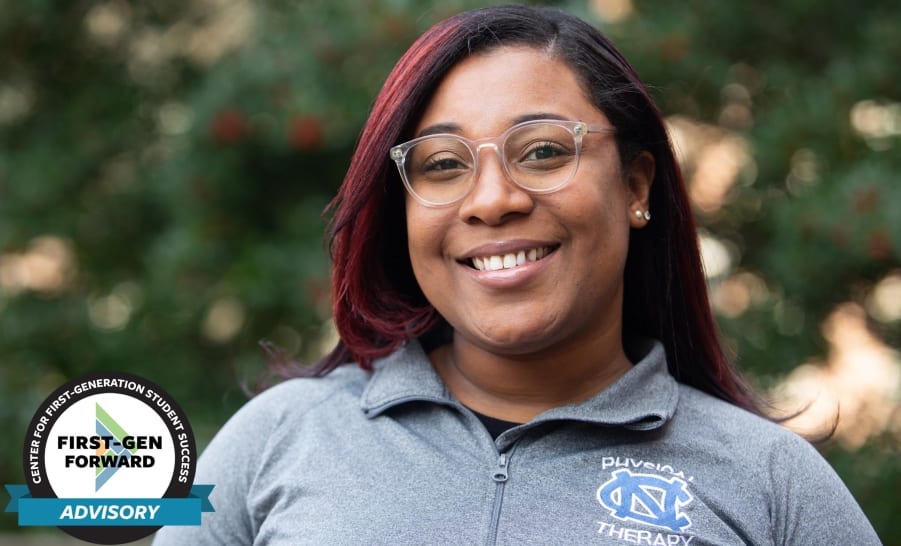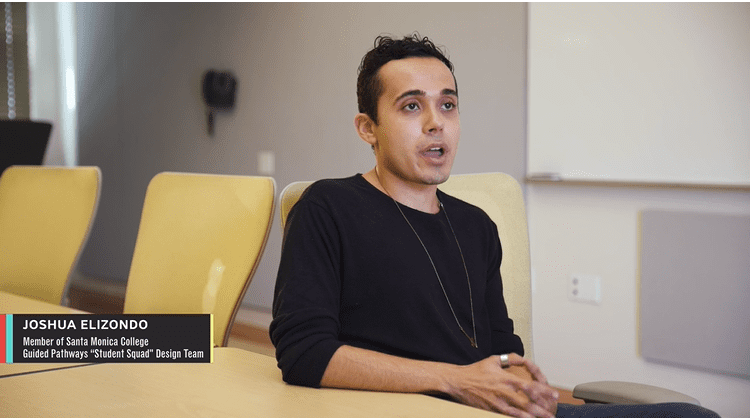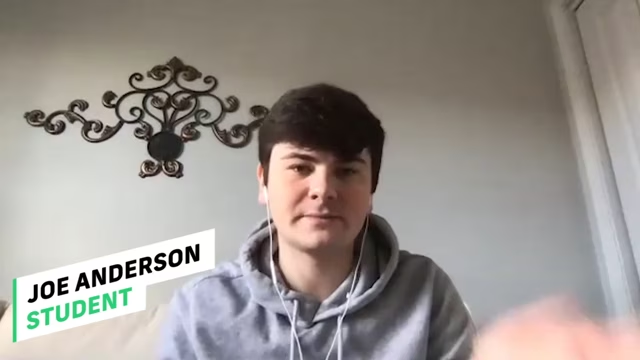WI
Milwaukee Area Technical College Student
Faculty and staff at Milwaukee Area Technical College (Milwaukee, WI) have a strong commitment to…
Contributed by: Jobs for the Future (JFF)
Milwaukee Area Technical College Student
Faculty and staff at Milwaukee Area Technical College (Milwaukee, WI) have a strong commitment to social justice and a belief that guided pathways can help create more equitable outcomes for their students. In launching pathways at MATC, faculty and staff are working to help students better navigate college as well as their broader community, which is facing the toughest consequences of deep economic inequality, deindustrialization, and structural racism.
NY
Marissa Reyes – LEDA Scholar
We Need to Make Mental Health a Priority in College I stared at my unfamiliar…
Contributed by: Higher Learning Advocates (HLA)
Marissa Reyes – LEDA Scholar
We Need to Make Mental Health a Priority in College
I stared at my unfamiliar boney frame as I choked back tears. I stared for what felt like a few seconds until my roommate interrupted my unrelenting stream of thought, “Hey, you look like you could use some rest, can you turn off the light?” I released the tension in my chest for a moment before agreeing, instinctually pushing the few stringy strands of my hair behind my ear. I laid my head on my pillow; staring out the window into the silhouettes of endless buildings, twinklings lights and taxi cabs. My peripheral vision suddenly blurred as I dozed off, but suddenly the glass on my window disappeared. An unknown energy forced me out of my fourth story window and the rush of gravity jolted me awake.
I shot upright on my bed, breathless and my heart beating in my ear. It was the recurring nightmare that I deeply resented yet anticipated every night for the previous two months. I silently cried in my bed, ready to pull my cheap Target covers over my cold, sweaty body. But that night was different. I pushed the covers off, opened my laptop and, with the little money that was in my bank account, booked a one-way ticket back home to Washington State. I was in the middle of my sophomore year at Barnard College and I was desperately struggling with anxiety, imposter syndrome and depression. I was 3,000 miles away from my small rural hometown and I felt like I had no one to turn to for help. I hadn’t made a close group of friends and never even considered going to a faculty member or to my advisor because I didn’t realize that you could approach faculty with mental health concerns. As a first-generation college student, I didn’t want to confide in my parents out of fear that I would fuel their anxieties about my being away in college and would add to the stress they were facing through their financial troubles and emotionally difficult divorce.
After my swift action of booking a plane ticket home, everything else happened quickly. I requested a leave of absence from my dean and in the blink of an eye I was back in rural Washington. The drastic measures I took to come home forced me to face my mental health struggles. When I returned home, I started seeing a therapist and prioritized my mental health. And by the end of the year, I was ready to return to Barnard.
Now that I am back at Barnard, on track to graduate only a semester behind, I have reflected on what caused my breakdown and what colleges can do to help students like me because I know that I am not alone in my experience. Imposter syndrome, exacerbated the disparities by the obvious wealth and privilege of my peers coupled with the lack of institutional support and community of peers from a similar background, led me to the turbulent night in my dorm when I booked a plane ticket home. I am not alone in my experience.
First generation, low-income students from public schools, referred to as the “Doubly Disadvantaged,” a phrase coined by Anthony Abraham Jack, often struggle navigating the transition to elite colleges. As Jack highlights in his new book, the “doubly disadvantaged” struggle to acclimate to elite spaces because they lack the social capital that their wealthy peers have as a result of their socioeconomic privilege. Additionally, the disparities in wealth and resources is overwhelming. My peers were vacationing at 5-star resorts while I was worried about my next meal. This can be mentally exhausting and, for me, it deteriorated my self-esteem, created the illusion of isolation and made me question whether I belonged among them.
Mental health is a growing issue for college students in general, especially for those from marginalized backgrounds, and especially those at elite institutions. As concerns around mental health grow, it’s essential that institutions of higher education respond accordingly. While this may seem like a daunting task, there are a few small steps that colleges can take to improve the mental health of their students. First, colleges can play a pivotal role in destigmatizing conversations about mental health. Colleges often require mandatory workshops during freshman orientation to help students acclimate to campus life and the surrounding area. For example, I was required to take a self-defense workshop during my orientation. Colleges should consider requiring workshops that prioritize wellness and mental health and raise awareness of counseling services that are available on campuses. Additionally, it’s important that underrepresented students are able to find a community on campus. This can be done through mentorship and opportunities that connect underrepresented students with other students, faculty members, or administrators who come from similar backgrounds. Additionally, providing dedicated staff and space for FGLI students can help offer an environment that allows community to flourish. Finally, there should be more scaffolding built into academic services that provides proactive supports to students from under-resourced communities, like providing free textbooks or, at a minimum, reserving textbooks that students from FGLI backgrounds can borrow for the entire semester. I believe that with the support and guidance of college administrators across the country we can improve mental health and, in turn, improve college success.
Barnard College student, Marissa Reyes shares her story as a low-income, first-generation, Mexican-American student who experienced “imposter syndrome”, a feeling of self-doubt and lack of belonging that some first-generation students experience. She believes that strong on-campus student support is essential to helping students complete college.
NC
Maria Dykema Erb, M.Ed., & Carmen Gonzalez, M.A.
FROM UNDERGRADS TO GRADS: A CONTINUUM OF SUPPORT FOR FIRST-GEN STUDENTS Maria Dykema Erb, M.Ed.,…
Contributed by: Center for First-Generation Student Success
Maria Dykema Erb, M.Ed., & Carmen Gonzalez, M.A.
FROM UNDERGRADS TO GRADS: A CONTINUUM OF SUPPORT FOR FIRST-GEN STUDENTS
Maria Dykema Erb, M.Ed., & Carmen Gonzalez, M.A., / The Center / January 27, 2020
This story was originally posted by the Center for First-generation Student Success.

First-generation college student programs are rapidly increasing in number on campuses across the nation. But what happens to those students when they go on to graduate or professional school? What if they’re the first in their family to pursue a master’s, doctoral, or professional degree? At the University of North Carolina at Chapel Hill, Carolina F1RSTS and Carolina Grad Student F1RSTS recognize and provide a continuum of support for the first-generation student community at both the undergraduate and graduate level.
The undergraduate Carolina F1RSTS make up nearly 20% of the total undergraduate population and initiatives started in 2008. The Carolina Grad Student F1RSTS (CGSF) initiative in The Graduate School was formally established in 2016.
The best way that we thought to convey the impact and necessity of both programs was to hear directly from LaCorey Cunningham, a first-generation UNC-Chapel Hill undergraduate alumna who is in her final year of her Doctorate in Physical Therapy degree and will soon be a double Tar Heel.
In her own words…
“As a first-year undergraduate student at UNC, I was drawn to any event or student organization that offered free food, swag, and a chance to meet new people. Like many others, I quickly added my name to the emailing lists of more organizations than I could manage, but I knew when it came to Carolina F1RSTS, I would never hit “unsubscribe.” I still remember the first welcoming event that I attended with my best friend. We were both amazed at the excitement and sense of empowerment surrounding being a first-generation college student. Although this was an honor I was personally proud to obtain, it often came with a sense of guilt from the previous generations who were unable to achieve this milestone; but it was THEIR hard work, guidance, and persistent pressure to pursue post-secondary education that paved the way for me.
As a Carolina F1RST, I consistently received emails about resources available on campus, workshops, and unique events geared toward supporting first-generation college students like myself. When reflecting on my experience, I realize that two of my most memorable moments at Carolina stemmed from this organization—my selection as a Bill Friday Award recipient and the Carolina F1RSTS Graduation Pinning Ceremony. The Bill Friday Award is presented to first-generation students committed to public service and education. As a recipient, I had the opportunity to meet with then-Chancellor Carol Folt as she personally hand-signed my degree and celebrated my ability to overcome adversity. Later I attended the pinning ceremony where we invited the person who supported us most during this journey. As my mother stuck the Carolina F1RST lapel pin into my white dress, we both became overcome with such emotion and pride knowing that I was able to change the trajectory of future generations to come.
When I decided to return to UNC to pursue my Doctor of Physical Therapy, I was unaware of how integral the graduate version of this organization would be to my retention and overall success. By hosting a variety of workshops geared toward reflecting, supporting, and connecting first-generation graduate students to various resources, I was able to contest feelings of inadequacy with workshops such as ‘Imposter Syndrome, Resiliency and Optimism,’ take a study break with friends and free appetizers at CGSF “First Fridays”, and brainstorm areas of need for other first-generation graduate students by serving on the Carolina Grad Student F1RSTS Advisory Board.
What I love most about Carolina F1RSTS and Carolina Grad Student F1RSTS is when we have the opportunity to interact and provide support for each other. Each year, both organizations collaborate to offer a networking event, where the first-generation undergraduate students learn fundamental networking skills and then get to put them into action through a mixer with their graduate counterparts. This is an event that maintained significance to me at any level as I continue to challenge myself to improve on communication skills in networking and professional settings.
I am deeply appreciative that Carolina acknowledges support is still imperative when entering a graduate, Ph.D., or professional program—as it presents a distinctive set of challenges that continuing-generation graduate students may not endure. To any first-generation undergraduate or graduate student, I encourage you to take advantage of these programs on your campuses. Be present, network, and use these opportunities to take a break from the stressors of academic work and engage in various topics. Furthermore, highlight any areas where you may need additional support so that first-generation programs can continue to make an imprint of the lives of first-generation students at any level.”
We welcome you to learn more about our Carolina F1RSTS & Carolina Grad Student F1RSTS programs. Also, this feature details the First-gen Forward Advisory Institution designation.
NJ
Marc Younker – Rutgers University
Marc, a student at Rutgers, discusses how this fall semester is different for him and…
Contributed by: Todays Students Coalition
Marc Younker – Rutgers University
Marc, a student at Rutgers, discusses how this fall semester is different for him and his classmates.
CA
Kimberly
The declining purchasing power of the Pell Grant makes it hard for students like Kimberly…
Contributed by: National College Attainment Network
Kimberly
The declining purchasing power of the Pell Grant makes it hard for students like Kimberly to cover all their education expenses.
Karishma Cordero
Karishma is Young Invincibles Texas Advocate.
Joshua Elizondo – Santa Monica College
MD
John Englehart
University of Maryland University College student John Englehart discusses his experiences as an adult learner…
Contributed by: Higher Learning Advocates (HLA)
John Englehart
University of Maryland University College student John Englehart discusses his experiences as an adult learner and student parent.
NY
Joe Anderson
Joe is a senior at Cornell University, and serves as the president of the Cornell…
Contributed by: Todays Students Coalition
Joe Anderson
Joe is a senior at Cornell University, and serves as the president of the Cornell Student Assembly. He discusses his role in providing support an a voice for fellow students, particularly through the coronavirus pandemic.
TX
Jasmine Di Diego
Jasmine is a Young Invincibles Texas Advocate.
Contributed by: Young Invincibles
Jasmine Di Diego
Jasmine is a Young Invincibles Texas Advocate.
- « Previous
- 1
- 2
- 3
- 4
- Next »






